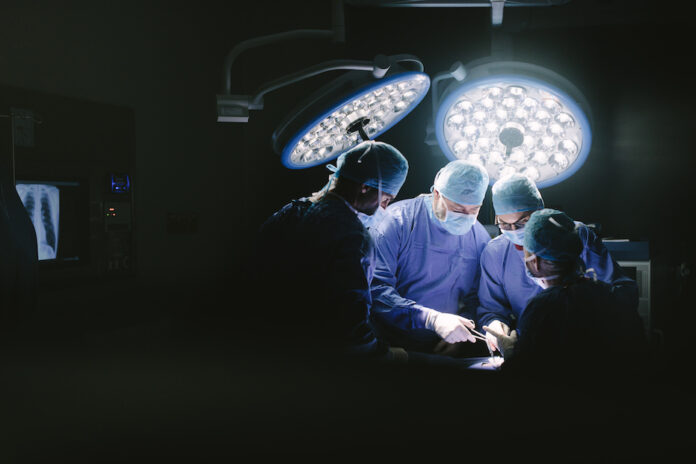Just like the airline industry has a black box to learn from, hospitals can now use recordings taken during surgical procedures to help train expert surgical teams.
Developed and commercialized by a team at St. Michael’s Hospital, Sunnybrook researchers are bringing a black box-like technology into the world of assessment – using it for the first time to evaluate performance and direct the training of expert teams in an operating room (OR) setting.
“If you measure something, you can improve it,” says Dr. Markku Nousiainen, orthopaedic surgeon at Sunnybrook Health Sciences Centre. “Our goal is to measure individual and team performance in the OR and use that information to develop teaching tools to improve performance with the goal to improve patient outcomes.”
This initiative focuses on patients having surgery to repair a hip fracture, as these patients can experience variations in outcomes. Research has shown that patient outcomes after surgery depend on more than just the performance of the surgeon – outcomes also depend on the entire surgical team including nurses, anesthesiologists, radiation technologists, and trainees.
“In order to optimize patient outcomes, we must ensure that the entire OR team performs at the highest level of expertise,” says Dr. Cari Whyne, research director of Sunnybrook’s Holland Bone and Joint Program, and a professor at University of Toronto. “However, we need to understand more about what expertise for a surgical team looks like, so that we can develop teams that perform at this level. This will help us minimize the current variation in surgical quality.”
The Sunnybrook pilot project will record videos and dialogue within the operating room, helping researchers measure skill levels and collaboration between team members. This information will be collected during hip fracture surgeries and analyzed to determine which aspects of surgical team performance and workflow can be improved, and to identify connections to patient outcomes.
“The continuous monitoring of the surgical environment and analytics will provide us with an objective data set to look at, allowing us to evaluate how the team members are performing without having to rely on individual recollections,” says Dr. Nousiainen, an associate professor at the University of Toronto. “Remembering is subjective and is subject to bias.”
Not actually a ‘black box’, the black-box-like technology uses small cameras installed around the OR and buried inside the overhead surgical lights. The equipment records audio, multi-resolution video, patient vitals and intraoperative x-ray imaging. The data is collected onto privacy-safe software and securely transferred to analysts to assess performance. A twin system has also been installed in a non-clinical OR for the purposes of training.
Sunnybrook’s leading team of orthopaedic specialists will determine how to provide expert, team-based surgical training and care in the operative management of hip fractures. “Our anticipated results will help establish best practices for delivering expert care to all orthopaedic patients,” adds Dr. Whyne.
The project is supported by a $3 million investment by the Wyss Medical Foundation.


